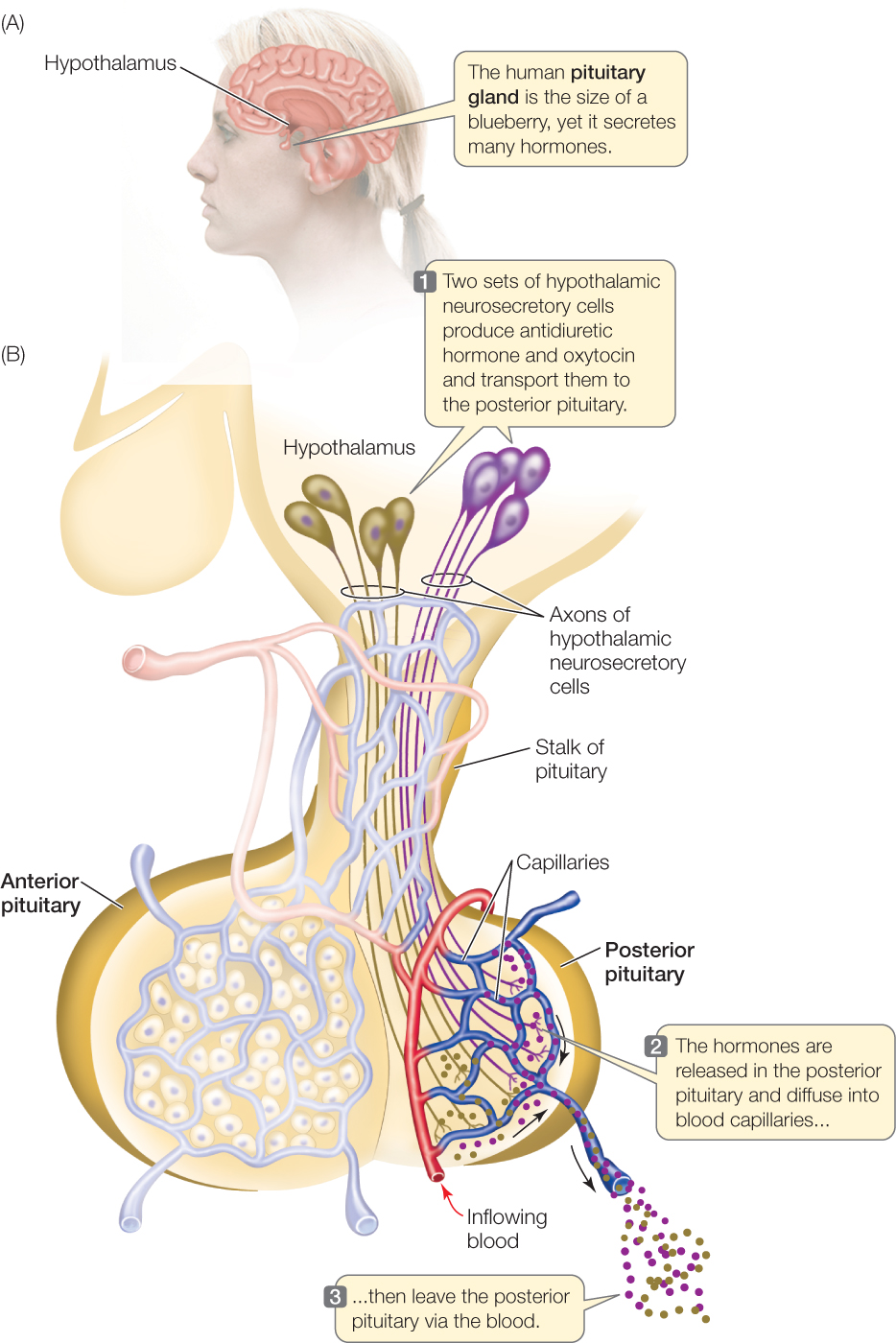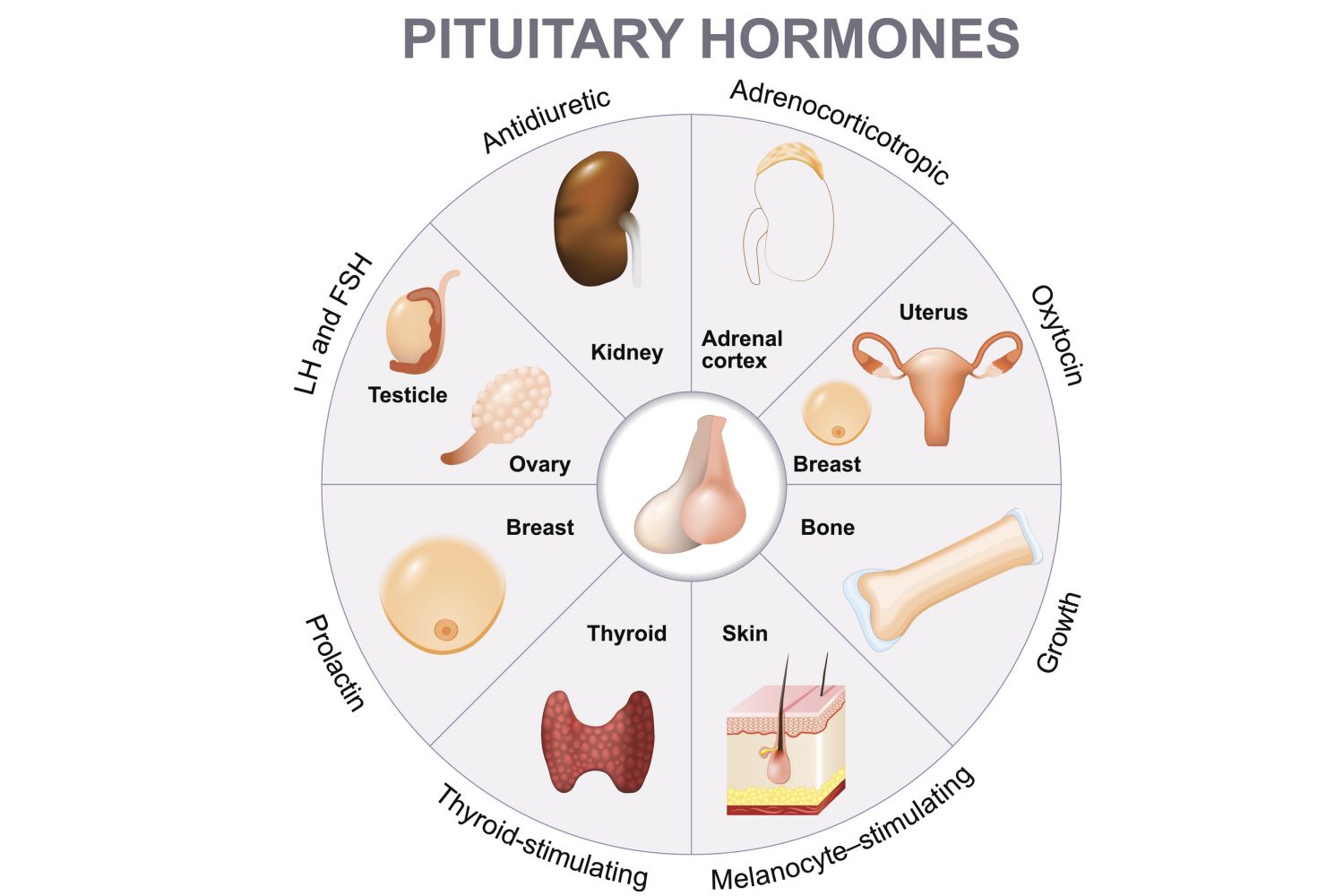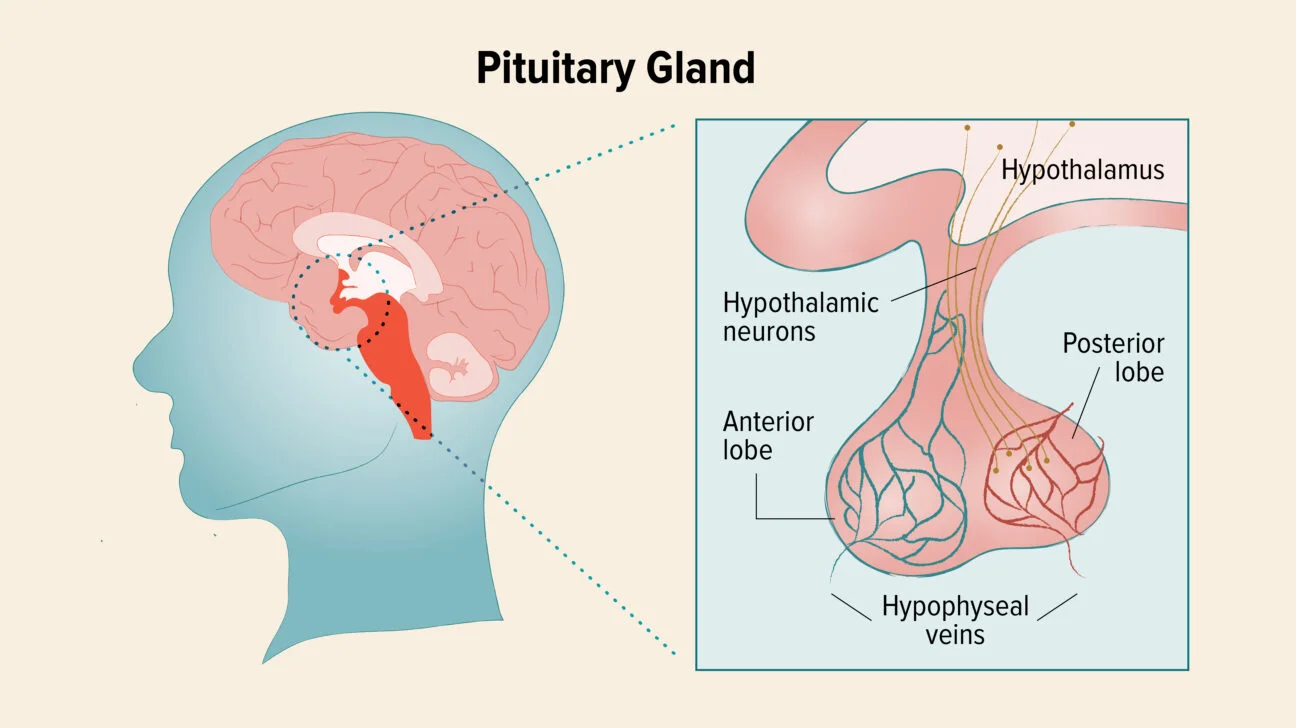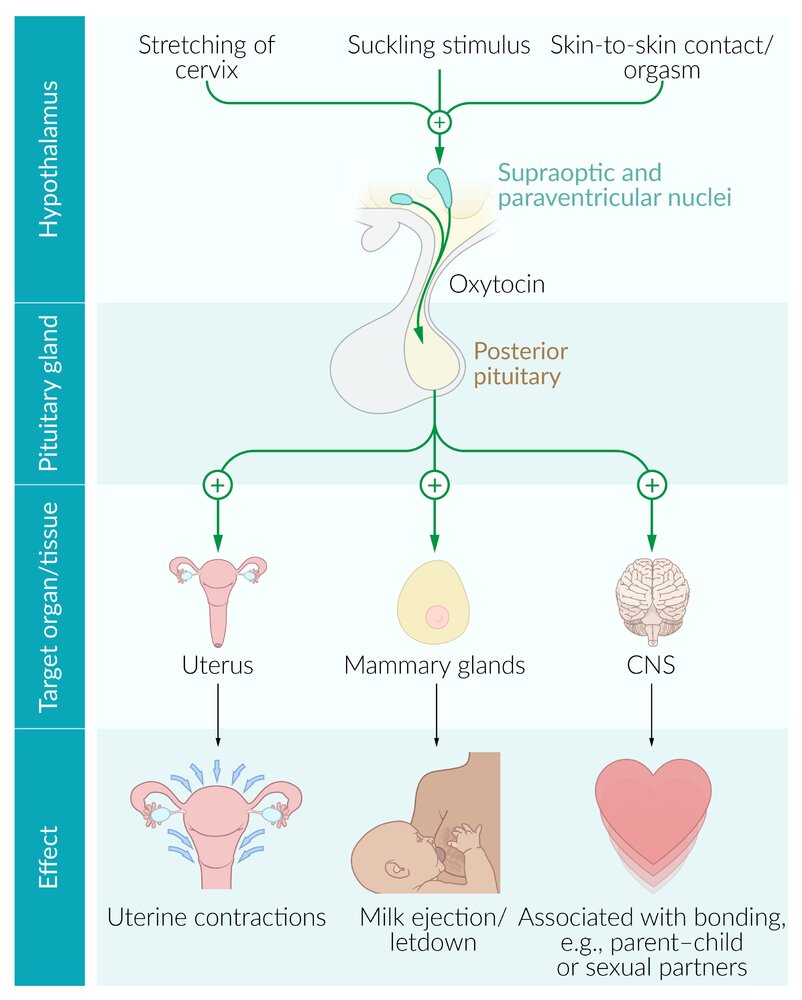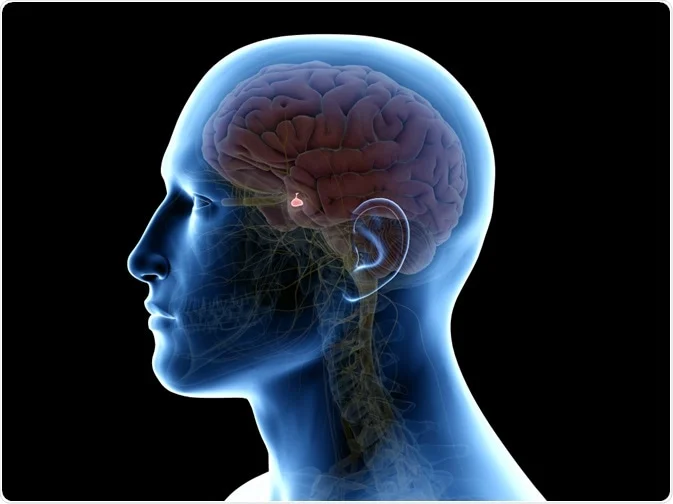
Key facts
- Your pituitary gland is found at the base of your brain.
- The pituitary gland makes many different hormones.
- Some of the hormones made in your pituitary gland signal other glands in your body, telling them to make hormones.
What is the pituitary gland?
The pituitary is a small, pea-sized gland. It is found at the base of your brain, in line with the top of your nose.
Your pituitary acts as your body’s ‘master gland’. It tells other glands in your body what to do.
What does my pituitary gland do?
The pituitary gland is an important part of your endocrine (hormone) system. It makes many different hormones.
Some of these hormones have a direct effect on your body. Other hormones control the actions of other glands that also make hormones.
These other glands include your:
- thyroid gland
- adrenal glands
- reproductive glands — ovaries and testes
These glands in turn produce:
- thyroid hormone
- cortisol
- oestrogen
- testosterone
- other hormones

What hormones does my pituitary gland make?
Your pituitary gland makes:
- growth hormone — which regulates growth
- thyroid stimulating hormone (TSH) — which tells the thyroid gland to make hormones
- prolactin — which controls breast milk production
- adrenocorticotrophic hormone (ACTH) — which tells the adrenal glands to make hormones
- follicle stimulating hormone (FSH) — which is involved in the reproductive system
- luteinising hormone — which is also involved in the reproductive system
Your pituitary gland also stores and releases:
- oxytocin — which is involved in childbirth and breastfeeding
- vasopressin — which helps control the amount of salt and water in your body
These hormones affect your:
- metabolism
- blood pressure
- reproduction
- other vital body functions
Your pituitary gland is controlled by your hypothalamus. The hypothalamus is found in your brain, above the pituitary gland. It tells your pituitary gland to make pituitary hormones.
Medical conditions related to the pituitary gland
Sometimes your pituitary gland can make too much or too little of a hormone. This causes a ‘pituitary condition’.
Pituitary conditions are often caused by growths in your pituitary gland. These cause hormone problems. These masses are usually not cancerous. They only cause problems when they change hormone levels or take up too much space.
Other causes of pituitary conditions can include surgery, radiation therapy, infection or trauma to the head. Problems with the hypothalamus can also cause a pituitary condition.
Treatment for pituitary conditions depends on the cause and the hormones affected.
Prolactinoma
A prolactinoma is a benign mass (tumour) on your pituitary gland that makes prolactin. Prolactinomas cause hyperprolactinaemia (too much prolactin in the blood).
A female with hyperprolactinaemia might:
- notice their periods becoming lighter or stopping
- have difficulty getting pregnant
- start lactating (producing breast milk)
A male with hyperprolactinaemia might have:
- difficulty getting erections
- a reduced libido
- infertility
- enlarged breasts
There are also other causes of hyperprolactinaemia, including some medicines.
Hypopituitarism
Hypopituitarism is when your pituitary gland doesn’t make enough of one or more of the pituitary hormones. This in turn affects hormones produced by other glands in your body.
The signs and symptoms can appear very slowly. They also vary from person to person.
Growth hormone deficiency
Growth hormone deficiency is when your pituitary gland does not make enough growth hormone. This might be due to:
- a tumour
- damage to your pituitary
- abnormal development of your pituitary
It can delay children’s growth and lead to a child being shorter in height than expected.
In adults, the symptoms of growth hormone deficiency can include:
- tiredness
- weak muscles and bones
- excess weight
- anxiety
- mood problems
- sleep problems
Other pituitary conditions
Rare pituitary conditions include:
- gigantism — where a child has too much growth hormone and grows very tall
- acromegaly — where you have too much growth hormone and your hands, feet and face get bigger
- Cushing’s syndrome — where your body creates too much cortisol due to a mass in the pituitary making too much ACTH

